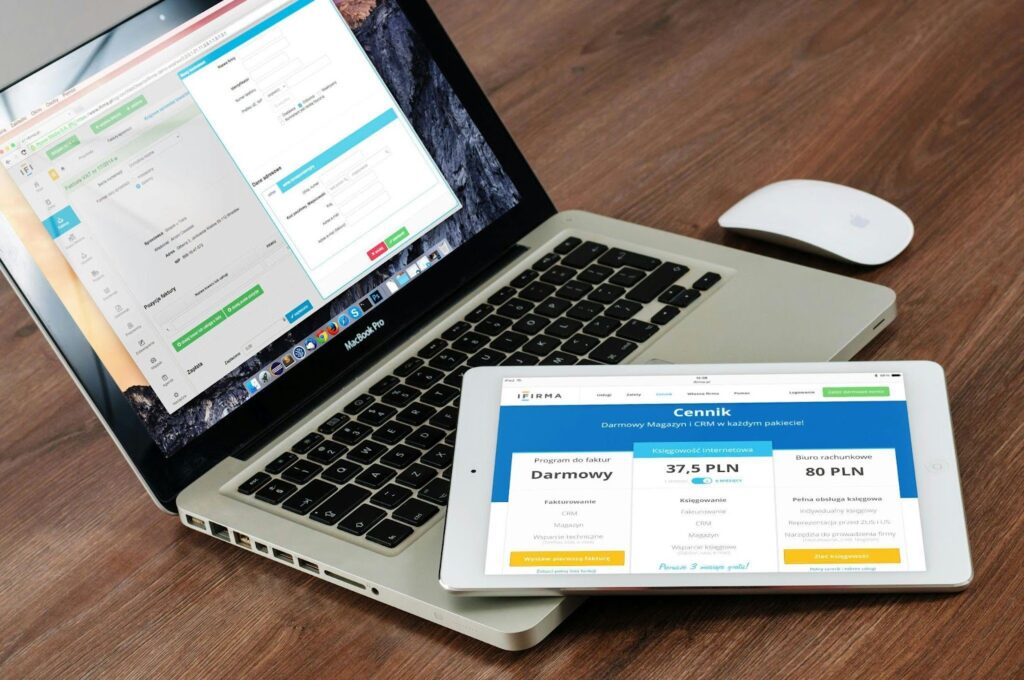Today’s business environment is more fast-paced and result-oriented than ever, resulting in a quest for workplace efficiency that has never been more critical. As part of this pursuit, accountability emerges as a cornerstone, influencing not only individual performances but also the collective output of teams and organizations.
Accountability, when intertwined with the process of performance reviews, transforms into a powerful tool capable of driving significant improvements in workplace dynamics. This approach, known as an accountability performance review, serves as a strategic framework to enhance efficiency, foster a robust culture of responsibility, and ensure that every team member’s contributions are aligned with the overarching organizational goals.
The essence of accountability reaches far beyond just task completion as well, as it encapsulates a strong sense of ownership, a commitment to meeting deadlines, and a proactive stance towards continuous improvement and professional growth. Integrating accountability into performance evaluations, however, can create a unique set of challenges, along with a unique array of opportunities. Maximizing effectiveness is going to require a fine balance between offering constructive feedback on poor performances and encouraging a positive attitude towards personal accountability and constructive criticism.
In this post, we’re going to dive into the raw, transformative potential of accountability performance reviews. We’ll look at some strategies that leaders and HR professionals can leverage to help address the lack of accountability and lack of ownership but also to cultivate an environment where personal responsibility, team performance, and organizational success are all in harmony. In the end, we hope to provide you with some valuable insights into making accountability one of the linchpins in your quest to drive a more efficient, engaged, and responsible workforce.

A Close Look Accountability in the Workplace
Accountability in the workplace is one of the most basic and foundational elements upon which the supporting pillars of trust, reliability, and efficiency are built. It’s a critical attribute that covers not only the fulfillment of the usual tasks, but also the welcoming of a sense of responsibility towards one’s roles, and the wider organizational goals.
In essence, accountability means taking ownership of mistakes just as much as successes and being willing to answer for the results or outcomes of the actions or decisions one makes. It’s about meeting deadlines, delivering high-quality work, and contributing positively to team goals and organizational goals. When employees exhibit a strong sense of accountability, they not only ensure the completion of their tasks on time but also help create an environment that enhances overall team performance.
A lack of accountability in the workplace can lead to a snowballing list of challenges within the workplace itself. A lack of accountability often manifests as missed deadlines, subpar work quality, and an overall decline in team morale. It creates a culture where poor performances are overlooked, and constructive feedback is undervalued, leading to stagnation in professional growth and a dip in overall organizational success. In situations like these, the burden of shouldering the workload of others to compensate for their unmet responsibilities creates a toxic environment of resentment and eroded team dynamics.
Accountability and Performance Reviews
Performance reviews, traditionally seen as a chance to evaluate employee achievements and areas where more coaching is needed, can be revamped into a powerful tool to build your culture of personal accountability and a sense of responsibility among team members. They can also offer a unique opportunity to create clear and reasonable performance expectations and align them with the broader organizational goals.
By incorporating accountability into performance reviews, an organization can graduate beyond the typical assessment of basic job functionality according to conventional metrics, and create a far more holistic view of how each individual’s contributions add to the team’s and organization’s overall success. This, by necessity, will involve not only acknowledging achievements and high-quality work but also openly discussing areas where accountability issues have hindered progress or positive results.
One of the biggest factors in fostering accountability through performance reviews is placing a focus on constructive feedback. Rather than merely highlighting poor performances, reviews should aim to provide actionable insights that encourage professional development and growth. Instead of pointing out that a deadline was missed, ask about obstacles and if there’s anything that can be done differently going forward, to mitigate the risk of another missed deadline.
Additionally, accountability in performance reviews should extend to recognizing and rewarding taking ownership of mistakes. Encouraging a positive attitude toward learning from errors and failures, and seeing them as opportunities for continuous improvement can significantly enhance the sense of responsibility and personal accountability of individuals as well as the team, collectively.
Strategies for Highly Effective Accountability Performance Reviews
It’s almost impossible to harness the massive potential of accountability performance reviews, without first implementing effective strategies for promoting transparency, fostering professional growth, and encouraging a foundational culture of responsibility. Here, we’re going to look at some easily actionable strategies that can help you transform performance evaluations from a periodic administrative task into a valuable opportunity to continually improve and develop your team.
- Set Clear Expectations: Begin by establishing clear, measurable performance expectations that are aligned with team and organizational goals. Employees should have a strong sense of what is expected from them, including meeting deadlines, delivering high-quality work, and demonstrating a commitment to accountability. Clearly defined expectations serve as a benchmark for both employees and managers during the review process.
- Encourage Ownership and Self-Assessment: Before the review, encourage employees to reflect on their performance, including achievements, challenges, and areas where they feel they could improve. This self-assessment fosters a sense of ownership and prepares them for a more meaningful discussion about their performance and personal accountability.
- Use Specific, Actionable Feedback: Constructive feedback is key to effective accountability performance reviews. Use specific examples and phrases for accountability that highlight both strengths and areas for improvement. Instead of vague comments, provide actionable advice that employees can use to enhance their performance. For instance, “I appreciate your commitment to meeting deadlines, which has significantly improved our project delivery times. Let’s explore ways to enhance your personal empowerment and delegation skills to manage additional responsibilities effectively.”
- Address Accountability Issues Directly: When discussing areas of improvement, address the lack of accountability or ownership directly but constructively. Focus on behaviors and outcomes rather than personal attributes, and discuss practical steps for improvement. For example, “I’ve noticed some challenges with delivering tasks on time. Let’s discuss what obstacles you’re facing and how we can work together to find solutions.”
- Create Development Plans: Performance reviews should result in a clear plan for professional development and growth. Identify opportunities for improvement and establish action items that are specific, measurable, and time-bound. Incorporate development opportunities that align with the employee’s career aspirations and the organization’s needs.
- Foster a Culture of Continuous Feedback: While formal performance reviews may occur annually or bi-annually, fostering a culture of continuous feedback is essential for promoting ongoing improvement and accountability. Regular check-ins and informal feedback sessions can help keep employees on track and address any issues promptly.
- Recognize and Reward Accountability: Positive reinforcement is a powerful motivator. Acknowledge and reward employees who consistently demonstrate a high level of accountability and a positive attitude toward their work. Recognition can take many forms, from verbal praise during team meetings to more formal awards.

Encouraging Ownership and Commitment
Creating a workplace environment where employees feel a deep and genuine sense of ownership as well as a personal commitment to their roles and the organization’s goals is integral to fostering accountability. It’s this sense of ownership that is about more than just the daily checklist, but about taking pride in results. Here are a few ways that an organization can promote this level of ownership and commitment.
Highlight individual contribution impacts
Make it a point in performance reviews to clearly articulate how an individual’s work contributes to the broader team and organizational objectives. Getting a clear image of the bigger picture enhances an employee’s sense of purpose and the importance of their role, which in turn fosters a deeper sense of ownership over their tasks and outcomes.
Promote transparency
Foster an environment where mistakes are openly discussed not as failures but as learning opportunities. Encouraging employees to own their mistakes and share their learning experiences with peers can build a culture of trust and transparency, further enhancing personal accountability.
Empower employee decision-making
Empower employees by giving them the autonomy to make decisions regarding their work. This empowerment can boost their confidence and encourage them to take the initiative, fostering a stronger sense of ownership.
Challenges and Potential Solutions in Accountability Performance Review Implementation
Implementing an accountability performance review process can cultivate a sense of responsibility and a culture of accountability, but it can also come with some substantial challenges. Here are a few of the common challenges faced by organizations, and a potential solution for each.
Subjectivity in evaluations
Maintaining objectivity in performance reviews can be challenging, especially when subjective measures of accountability and responsibility are involved. This can lead to perceptions of bias or unfair evaluations.
To help mitigate this, develop clear, objective criteria for evaluating accountability and performance. Use specific examples and data wherever possible to support evaluations and minimize subjectivity.
Resistance to change
Employees and sometimes managers may resist the shift towards accountability-focused reviews, fearing punitive measures or undue criticism. This resistance can stem from a lack of understanding of the process’s benefits or previous negative experiences with performance evaluations.
Address resistance by educating employees and managers about the purpose and benefits of accountability performance reviews. Clear communication about how these reviews aim to support personal and professional growth, rather than punish, can alleviate fears.
Overemphasis on faults
Focusing too heavily on mistakes or failures without recognizing achievements can demoralize employees, leading to decreased motivation and engagement.
Ensure that performance reviews balance constructive criticism with recognition of achievements. This approach encourages employees to view feedback as a valuable tool for growth rather than just a critique of their performance. Also, create an environment where mistakes are seen as learning opportunities.
Final Thoughts
Embracing accountability within, and as a component of, performance reviews is a strategic choice that can lead to a more motivated, responsible, and highly performing workforce. It’s an investment in the professional development of employees and, ultimately, in the sustained success of the organization. If you think your organization is ready, book an hour with a senior partner to discuss your goals.
